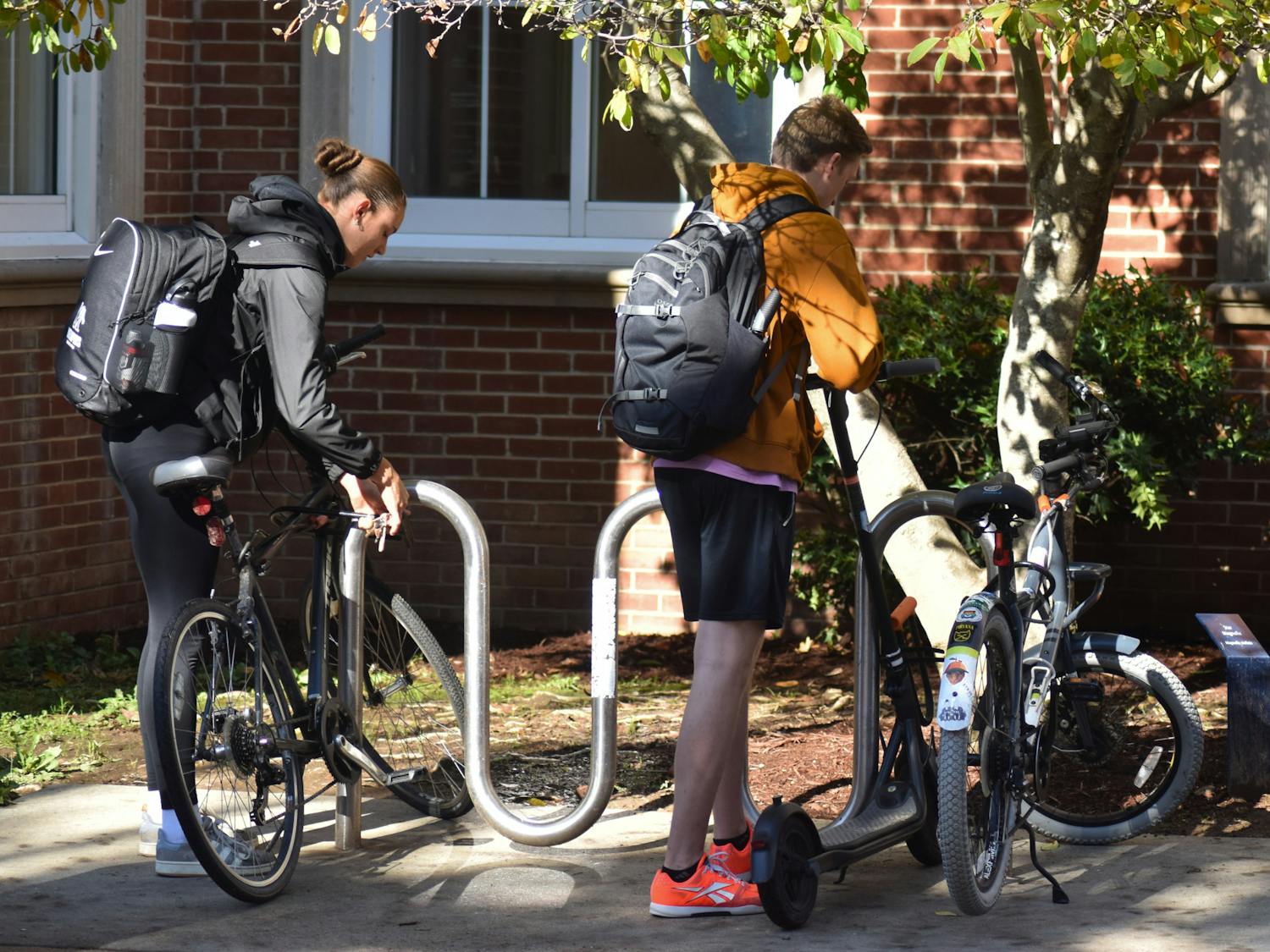Nearly 245 million Americans say they use the radio at least once a week and with 61 different licensed radio stations in the Memphis area alone, it would appear that the radio business is doing well.
Unfortunately, there are omi- nous signs for the radio business, which is becoming increasingly threatened by online streaming music services, many of which are free.
People in the radio business are torn about the future of radio, but many agree that the future is likely away from traditional music and more toward talk, specialty programming and local information.
The number of people listening to music on the radio is slowly declining, said Jay Young, the on air co-host of the morning show “Young and Elder” on 95.3 WBEL the Rebel in Memphis.
“There will always be an audi- ence that wants to hear about what is going on from a local source, but with all the music stream- ing apps out there listenership is decreasing,” Young said.
The August Neilson report found that the national radio audi- ence has hit an all-time high for the second year in a row: 245 million Americans, more than 91 percent of those 12 or older, are using radio in a given week.
One reason that radio is thriv- ing is because it is free. Other apps and music services do offer a free version, but in order to receive all the music available or to avoid commercials, a person must pay a monthly fee.
The most popular streaming service is Spotify. It’s the highest grossing music streamer on Apple’s app store. It does offer a free version, but for access to all of the music available, it costs $10 a month.
Other popular streaming ser- vices include Pandora, Google Play and Amazon Prime music. Pandora costs $4.99 a month for commercial free music and Google Play is $10 a month. Amazon Prime music is free only to Amazon Prime members, which costs a yearly fee of $100.
Another reason that radio is still thriving is because it is easy to understand and use. Outside of the younger generation, most
people have not tried a streaming service.
In the Memphis area there are now 61 radio stations. These stations run every musical genre from Top-40 to gospel music. They also air sports, news and talk radio.
Gospel music and Christian contemporary are the most popular genres in Memphis with a combined nine stations in the area.
A two way tie for second place is religion talk and Country which have seven stations. Classic hits oldies has six, sports talk has five, news talk has five and hip-hop has four. Four genres all have three stations top-40, Adult contemporary, rock, and urban contemporary.
Country is a popular musical genre so it is not shocking that it has seven stations playing its music. By the number of stations playing classic hits/ oldies it can be concluded that their main targeted audience is the older generation.
Other contributing factors to this conclusion is the amount of news and sports talk stations which are normally listened to by the mid age and older generation.
The other factor is that the younger musical genres are in last
place among the amount of stations. These genres would include top-40, rock and hip-hop.
One station that caters to this older audience is Sports 56 WHBQ and 87.7 FM. Mike Brewer, the General Sales Manager of Sports 56 does not believe that podcasts and streaming services are hurting his business.
“We mainly target the 35 and up audience,” Brewer said. “With podcast being available at all times, it could hurt us with the younger listener, but the normal listener will listen to it in their car and on their computer at work.”
Brewer has been in sales for 11 years all with Sports 56 and said that sales have decreased over the years due to competition in the market.
Until only four or five years ago Sports 56 was the only major sports talk station in Memphis. Now with WMFS 92.9 ESPN playing a big part in the market it has taken some listeners from Sports 56.
“For the station itself this is not a particularly good thing but for the sports talk radio market it is good because it shows growth and that more people are interested in
sports talk,” Brewer said. “The new music playing apps
has to have an effect on music station,” said Eli Savioe, programming director and host of Middays on Sports 56 WHBQ. “Bottom line is why listen to the radio when I can listen to the exact music that I want to rather than hoping a radio station plays a song that I like?”
Savioe believes that it will affect the music station, and he does not believe that streaming apps will effect talk radio.
For many people in the radio business, the concern is not how to get people to listen while they are in their cars, but to how to keep them listening when they get out.
One way stations are trying to keep people listening is through the same technology that is hurt- ing them. Now almost every radio station has their own streaming that can played at anytime from anywhere on a mobile phone.
“Technology is always changing and evolving and the job is to figure out how to keep radio up to date with the new technology,” Savioe said. “If we don’t do this the





